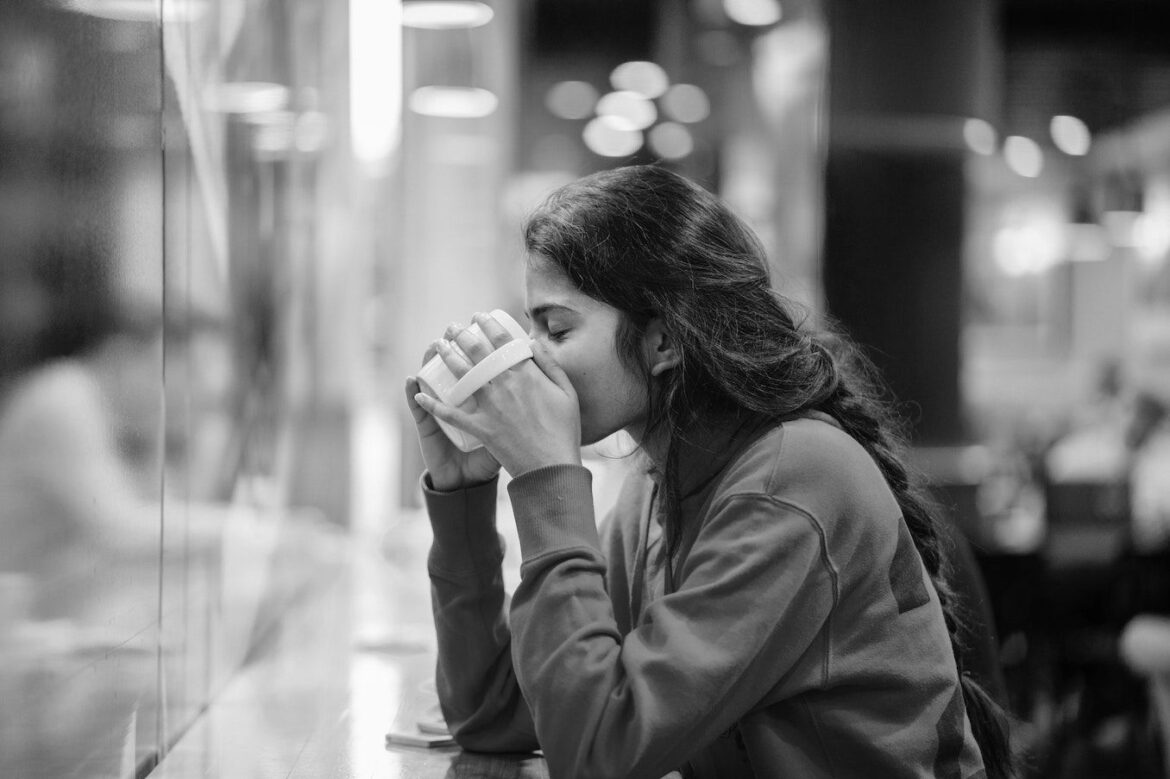In a world that tells us to hide away our negative feelings and mental health struggles, what do we have to gain from radical self-acceptance?
One of the great contributing factors to mental illness is the idea that we should be well at all costs and all times. We suffer far more than we should because of how long it can take many of us until we allow ourselves to fall properly and usefully ill.
For many years we may be able to evade our symptoms skilfully, pulling off an accomplished impression of what counts – in our unobservant societies – as a healthy human. We may gain all the accoutrements of so-called success – love, a career, family, prestige – without anyone bothering to note the sickness behind our eyes. We may take care to fill our days with activity so that we can be guaranteed to have no time to deal with any of the sores that blister inside. We can rely on the extraordinary prestige of being busy to avoid the truly hard work of doing nothing other than sit with our minds and their complicated sorrows.
We may be deep into mid-life before the problems finally emerge with clarity. When they do, it is liable to be extremely inconvenient to those around us. We may be unable to get out of bed; we might say the same mysterious sentence again and again. We might still be in our pyjamas at midday and awake and wide-eyed at 2 a.m. We might cry at inopportune moments or shout angrily at people who had always relied on us for docility.
In a crisis, our chances of getting better rely to a significant extent on having the right relationship to our illness; an attitude that is relatively unfrightened by our distress and that isn’t overly in love with the idea of always seeming ‘normal’, which can allow us to be unwell for a while in order one day to reach a more authentic kind of sanity.
It will help us in this quest if the images of mental illness we can draw on do not narrowly imply that our ailment is merely a pitiable possibility; if we can appeal to images that tease out the universal and dignified themes of our state, so that we do not have to fear and hate ourselves for being unwell on top of everything else. We stand to heal much faster if there are fewer associations like those created by the Spanish painter Goya (of madness as the seventh circle of hell) and more of men and women a little like you and me, sitting on the sofa, able to combine our inner wretchedness with other, more temperate and attractive qualities – so that we remain every bit human, despite our terrifying convulsions, absences of mind, catastrophic forebodings, and sense of despair.
The best philosophical background against which to wrestle with mental unwellness is one that conceives of the human animal as intrinsically rather than accidentally flawed; a philosophy that rejects the notion that we could ever be perfect and instead welcomes our griefs and our errors, our stumbles and our follies as no less a part of us than our triumphs and our intelligence.
Japan’s Zen Buddhism boldly expresses such thoughts, with its declaration that life itself is suffering, and its veneration in the visual arts – and by extension in its psychology – of all that is imperfect and unglossy: rainy autumn evenings, sadness, moss-covered roofs, stained wooden panels, tears and, most famously, misshapen and irregular pieces of pottery. Against such a background, it becomes much easier for us to accept ourselves in our unwell state. We feel less guilty that we are not at work and are not playing up to the roles demanded of us by responsible others. We can be less defensive and frightened, more inclined to seek out care, and more likely to recover properly in time.
With a philosophy of acceptance in mind, we can recognise that whatever the particularities of our crisis (which will need to be investigated with time), our pains fit into a broad picture of a crisis-prone human condition. No one is spared. No life can escape significant troubles. We don’t have to know the details of someone’s life to be able to guess at the sort of difficulties they too will encounter. We have all been born to inadequate parents; our desires will always exceed reality; we will all make some appalling errors; we will hurt those we love and anger those with power over us; we will be anxious and confused, woeful and lost. We should accept both that we are profoundly unwell and that our ailments are entirely normal.
Japanese philosophy has another lesson for us at this point: we will probably one day be pieced back together, but we are likely to retain substantial and ineradicable scars. Yet these marks can be worn with pride and self-respect. According to Zen Buddhism’s tradition of kintsugi, an accidentally smashed bowl is not to be thrown away in embarrassment; its fragments can be carefully collected and reassembled with glue inflected with gold. The traces of repair are made obvious, celebrated and cherished, as if to suggest to us – as we bring a cup to our lips – that we do not have to give up on ourselves or be ashamed of our own brokenness.
Extracted from ‘On Mental Illness’ by The School of Life, out now, £15.

